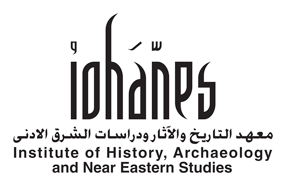Rusiya wa Orthodox al-sharq (Russia and Eastern Orthodoxy)
This is the title of a conference organized by the University of Balamand,October 19, 1997. University professors from the University of Balamand, the Lebanese University, and from Russia and Germany participated.
Dr. Georges Nahas, in summing up the issues of this conference said: Our concern is not to relate a history that is over a hundred years old, or to examine literary, diplomatic or religious texts. The truth is that the roots of the Russian dealings, which were reciprocated, go back to several centuries. So what is our concern today? Is there specificity to the Russian policies towards the region that goes beyond the ordinary concerns of colonization? What about its cultural concerns, specifically in the area of education. What about the intellectual concern and the religious interaction between the Russian and the Eastern Orthodox. What is the historical legacy of these two regions? A legacy that poses an important area of study for researchers. How can we rediscover and positively reactivate these relations?
Some of the articles are:
-Russia and the Holy Lands during the Crusades by A. F. Nazarenko (need to check spelling)
- The issue of language in the Russian schools in the East at the end of the 19th and the beginning of the 20th century by Dr. Souad Slim
- Russian policies in the 18th century: Reaching the sea by Munthir M. Jaber
- Syriac scriptures in the Slavic Russian writings by Elena Misherskaia (check spelling)
Works of this conference were published in 1988 under the same title as the conference.
Dr. Georges Nahas, in summing up the issues of this conference said: Our concern is not to relate a history that is over a hundred years old, or to examine literary, diplomatic or religious texts. The truth is that the roots of the Russian dealings, which were reciprocated, go back to several centuries. So what is our concern today? Is there specificity to the Russian policies towards the region that goes beyond the ordinary concerns of colonization? What about its cultural concerns, specifically in the area of education. What about the intellectual concern and the religious interaction between the Russian and the Eastern Orthodox. What is the historical legacy of these two regions? A legacy that poses an important area of study for researchers. How can we rediscover and positively reactivate these relations?
Some of the articles are:
-Russia and the Holy Lands during the Crusades by A. F. Nazarenko (need to check spelling)
- The issue of language in the Russian schools in the East at the end of the 19th and the beginning of the 20th century by Dr. Souad Slim
- Russian policies in the 18th century: Reaching the sea by Munthir M. Jaber
- Syriac scriptures in the Slavic Russian writings by Elena Misherskaia (check spelling)
Works of this conference were published in 1988 under the same title as the conference.
Date:
19 تشرين الأوّل 1997
